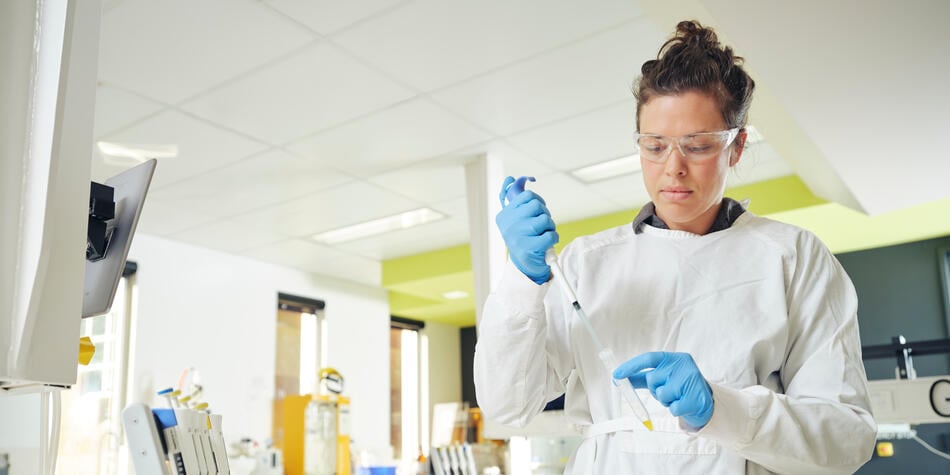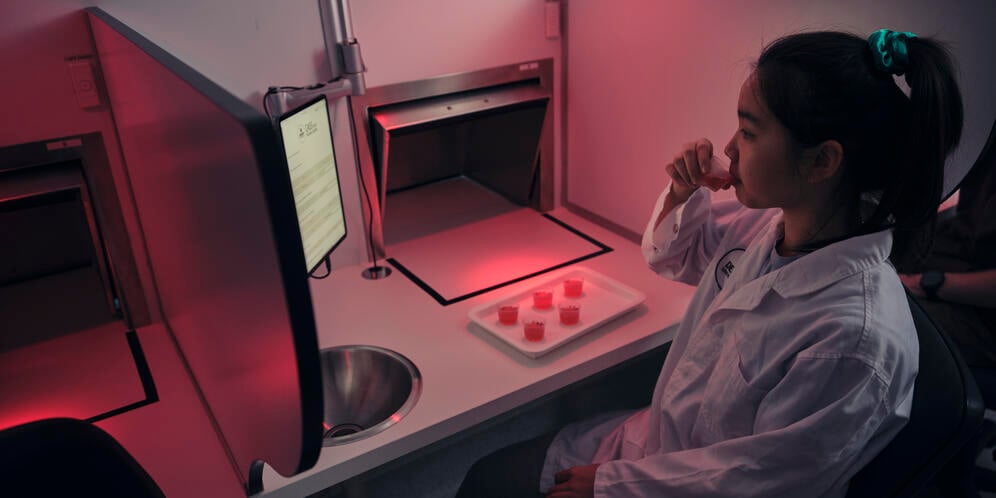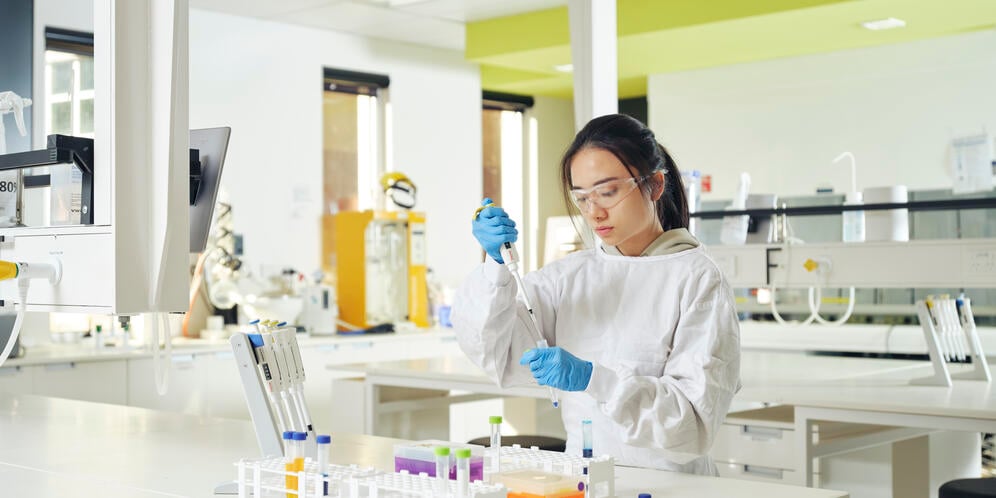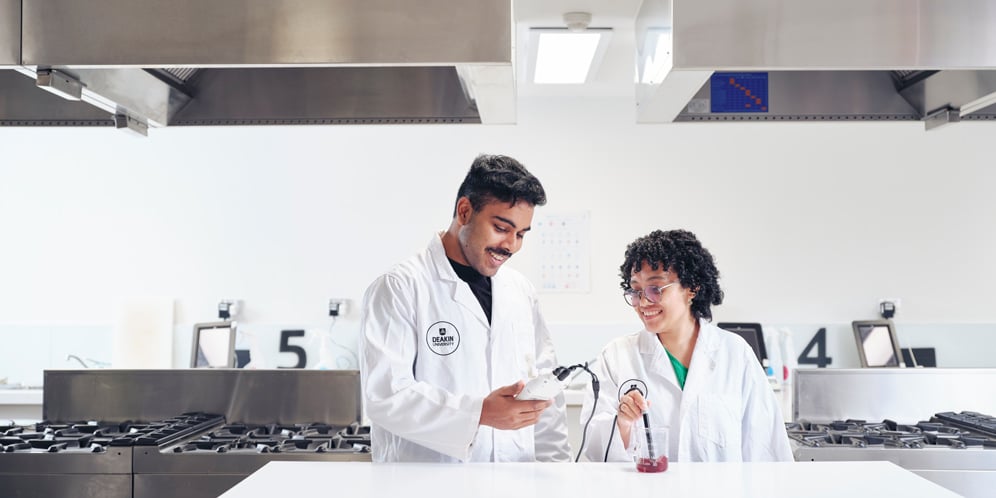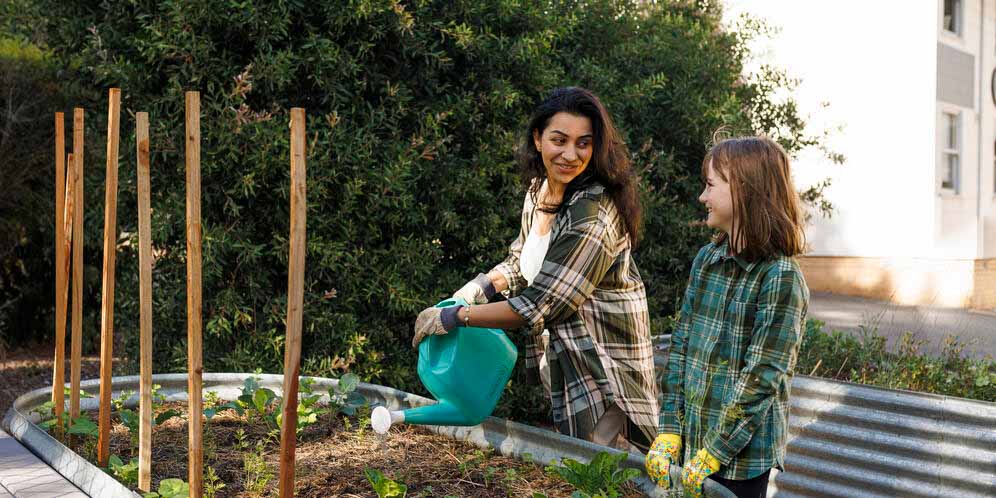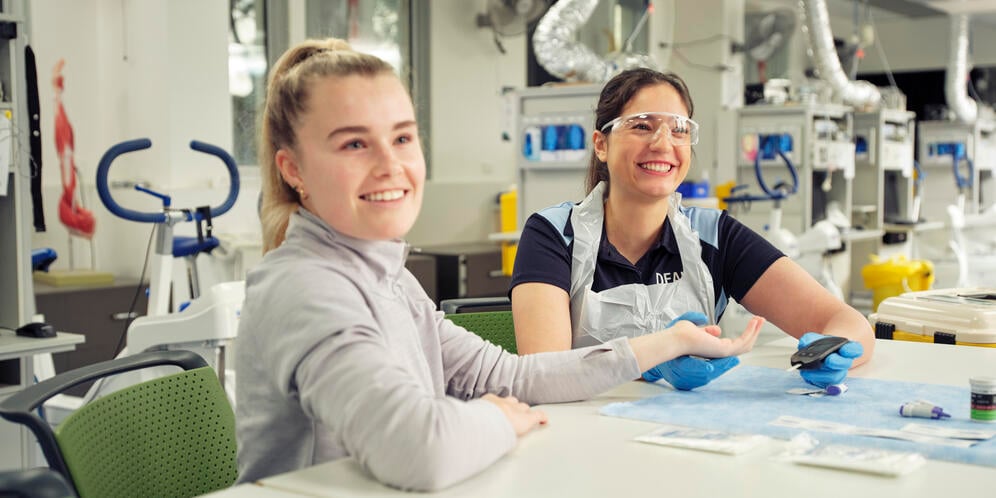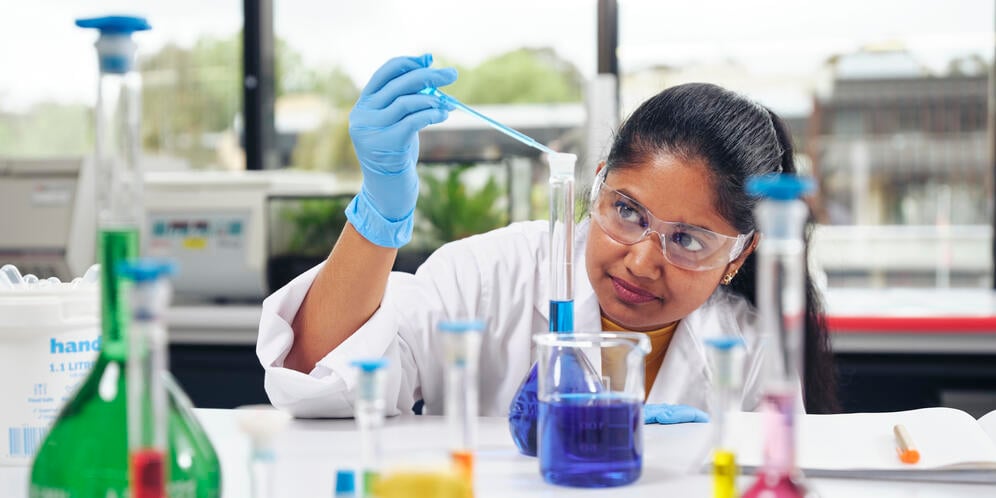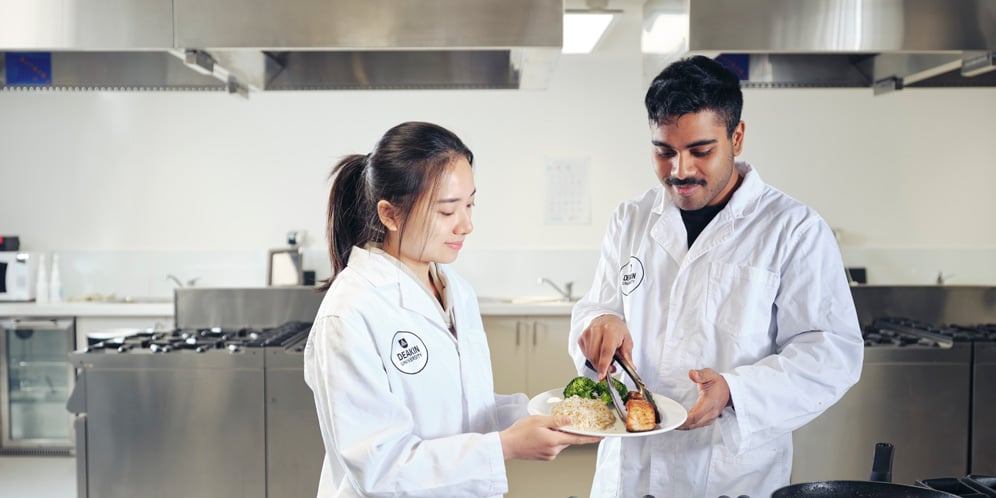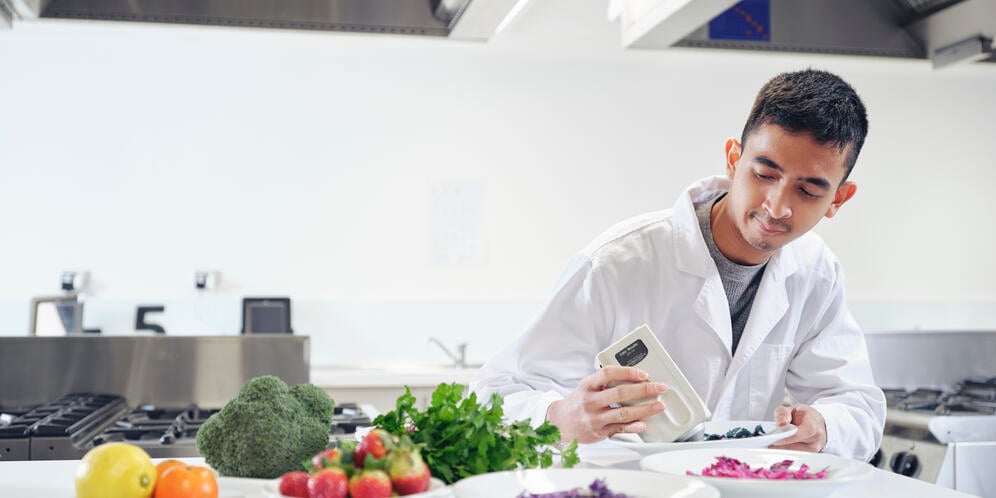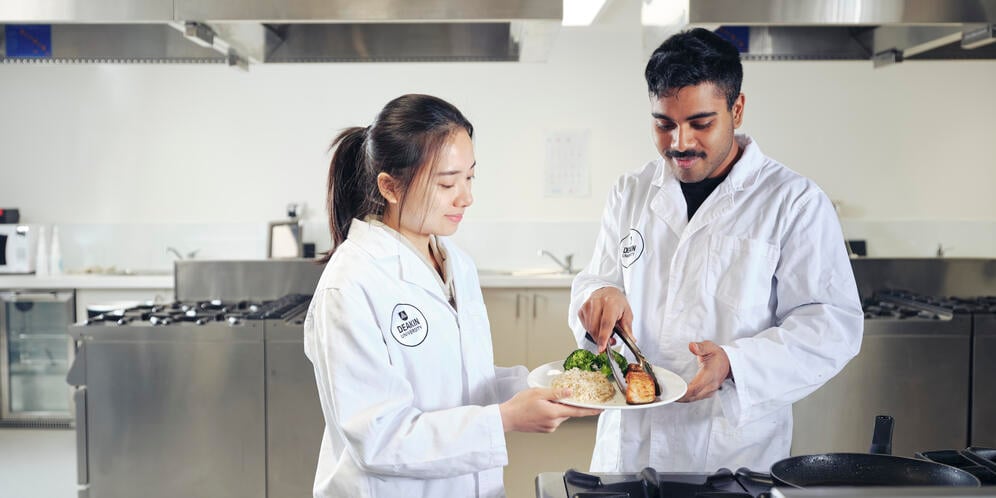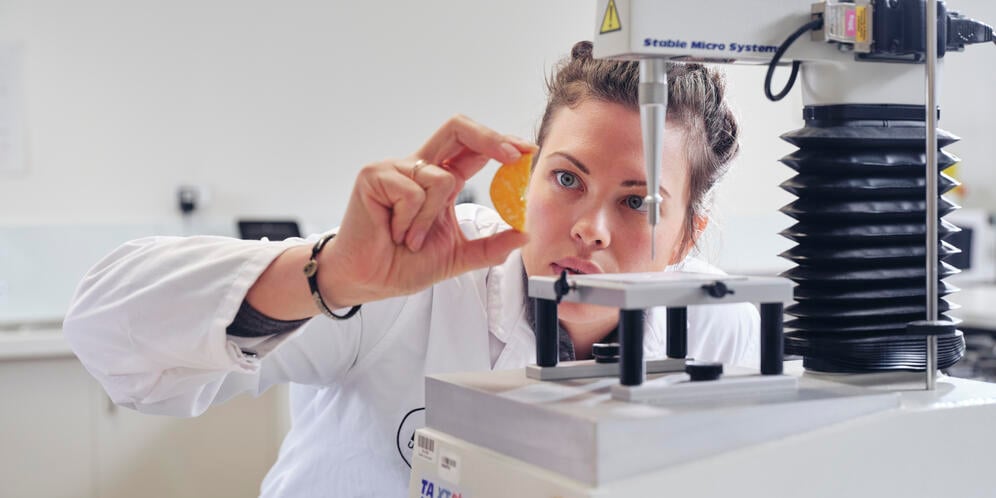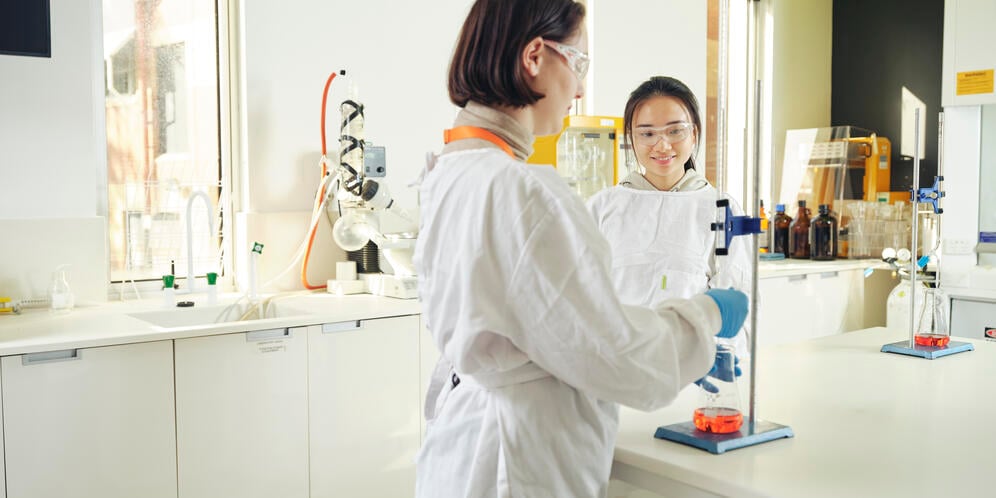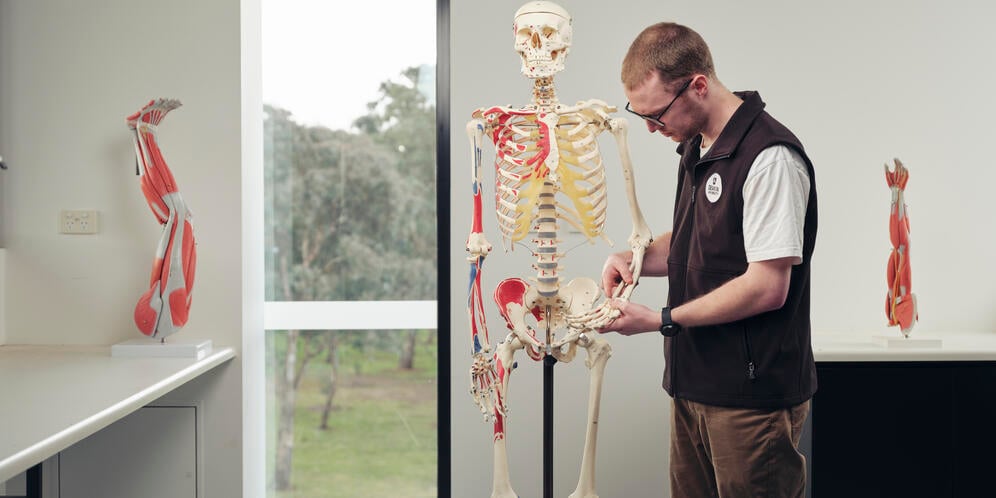Explore your study options
Tailor your studies to focus on career paths such as childhood nutrition, nutrition policy, nutrition in ageing, obesity prevention and health promotion. With extensive practical and theoretical knowledge, you'll have access to a range of careers in the food industry, health services, business and media. Use your skills to help create better health outcomes for our society.
Undergraduate
Undergraduate (your first degree)
A Deakin undergraduate course is the foundation of your future career, usually completed in two to four years. Duration varies based on degree type, enrolment pattern and any credit received from recognition of prior learning.
Postgraduate
Postgraduate (further study)
A postgraduate qualification can be undertaken by students who have already completed an undergraduate degree or possess significant, demonstrable work experience. Postgraduate courses include graduate certificates, graduate diplomas, masters and PhDs, as well as specialist programs for industry professionals.
Research
Higher Degrees by Research (supervised research)
Research degrees are research based master’s or PhD programs that focus on a single area of expertise. They provide students the opportunity to carry out highly specialised research under expert supervision.
Choose a food and nutrition sciences degree that will make you work ready
The health and human services sector is one of the largest and fastest growing industries in Australia and the world. With ageing populations and public health issues like obesity, heart disease, and chronic illness on the rise, employability in the sector is strong and continually increasing.
VCE prerequisites
If you're interested in a career in food and nutrition but haven't studied chemistry at school, you can still follow your passion as it's not a prerequisite for studying with us. Our Bachelor of Nutrition Sciences is the largest nutrition course in Australia, and our experienced academics will get you up to speed in no time.
Industry-leading research
Deakin University is #1 in Australia for research in nutrition science. After studying food and nutrition science, you might contribute to research across areas like public health issues, illness and disease, nutrition and mental health, and sports nutrition. Gain the expertise needed to conduct projects that can shape the food and nutrition industry.
Professional recognition
As a student or graduate, you can apply for membership in the Nutrition Society of Australia (NSA). If you choose to study the food science major sequence in your course, you’ll be eligible for membership in the Australian Institute of Food Science Technology (AIFST).
As a graduate of our nutrition courses, you’ll also be eligible to apply to become a Registered Associate Nutritionist with various industry bodies, depending on where you’d like to practise.
Study online at the #1 Victorian uni for graduate employment
Deakin's online food and nutrition sciences degrees are designed to fit your lifestyle and career goals so you can study anytime, anywhere. Join more than 78,000 online students who have already graduated from Deakin.
Top professional roles in food and nutrition sciences
There are many different careers to explore in the $20 billion Australian food industry, such as:
- community nutrition
- consumer education and awareness campaigns
- food policy
- food regulation
- food laboratories
- food wholesale and retail
- nutrition and agribusiness
- private consulting
- quality assurance and control research institutes
- sports nutrition.
Studying nutrition at Deakin has a lot of benefits. My degree will provide me the ability to inform consumers, stimulate innovative thinking, drive vital conversations, and build better health outcomes.
Safira Esperanca Da Cruz Carvalho
Bachelor of Nutrition Science
Join a sector with a healthy future
The Australian Government projects over 15% growth for nutrition professionals over the next five years, with the healthcare and social assistance sector more broadly expected to grow by over half a million jobs in the next 10 years.*
World-class teaching experiences
Deakin’s industry-shaped courses and practical, real-world approach to learning will prepare you to be adaptable across the jobs of the future.
Hands-on learning
Our food preparation, food analysis and sensory laboratories are modelled on commercial facilities – giving you hands-on experience and preparing you for the workplace.
Gain real-world experience
Gain extensive practical experience through placement opportunities. You’ll build industry experience and connections while applying your skills alongside established nutritionists and food industry professionals.
International perspective
Learn about food, nutrition and cultural perceptions and issues by studying abroad to gain an international perspective. Our food and nutrition science courses can lead to registration with international associations.
Study nutrition at Deakin
Deakin's flagship nutrition course, the Bachelor of Nutrition Science, ensures you'll graduate job-ready by offering industry placements in health, diet and wellbeing. This is your chance to shape the future of Australia's food industry.
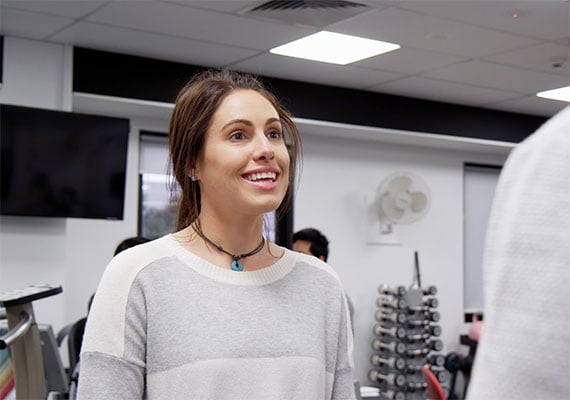
Footnotes
*2023 Employment Projections – for the five years to 2026, and for the ten years to 2033, Jobs and Skills Australia.
Deakin references data from a range of government, higher education and reputable media sources. For more information, visit our list of sources.
Contact us
Got a question about our food and nutrition sciences courses? Our course advisers are available to speak to you about your study options and how we can help you further your career.
Domestic students
1800 693 888
Enquire online
International students
+61 3 9918 9188
Enquire online

